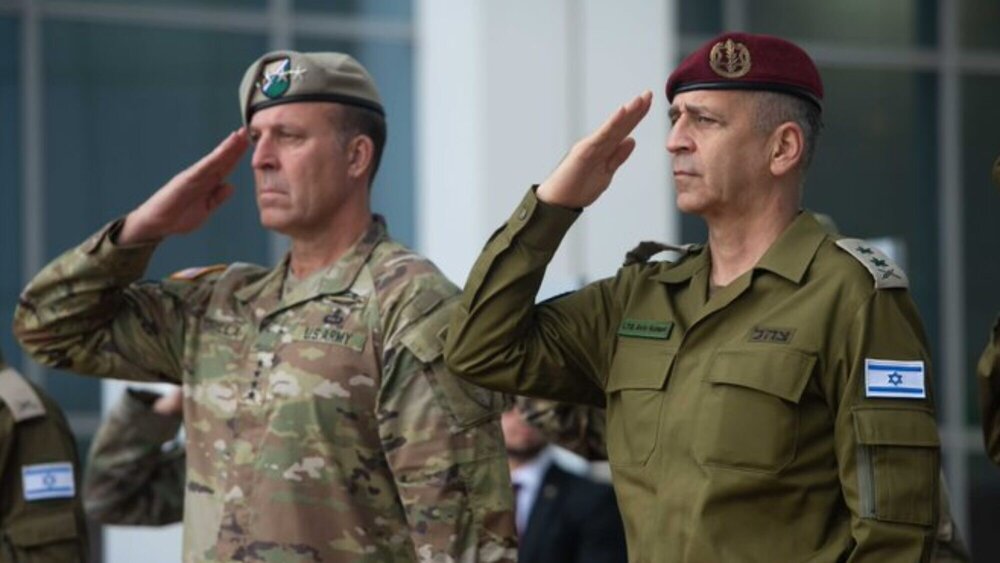Region rejects notion of alliance against Iran

TEHRAN —General Michael Kurilla, who now serves as the head of the United States Central Command (CENTCOM), has recently proposed an idea which would include forming an integrated air and missile defense system in West Asia with the inclusion of Israel.
Kurilla added that the notion is “a priority” for the U.S.
Why does this matter?
Four informed sources told Axios in June that the White House had a covert briefing with think tank experts concerning Joe Biden's travel to the region, and that the subject of a "road map for normalization" was discussed.
However, the sources did not go into detail about the roadmap. In this sense, Biden's administration wishes to strengthen collaboration between these countries in order to fight the so-called Iranian threat by merging their early warning, intelligence, and interception capabilities.
Kurilla arrived in Tel Aviv on July 17 after visiting Jordan and areas in Syria under U.S. control. It was his second journey to the occupied Palestine in two months, and his fifth since becoming CENTCOM commander earlier this year.
He met with Israeli Defense (read: War) Minister Benny Gantz and Chief of Staff of the Israeli Defense Forces (IDF) Aviv Kochavi to discuss their shared security concerns.
He concentrated on Israel's air and missile defense systems, as well as the threat posed by modern unmanned aerial systems and ballistic missiles.
Kurilla emphasized that integrated air and missile defense remained an objective for CENTCOM and its Middle Eastern partners. “This is critical to defending our forces, our partners, and our interests. It is a clear priority, one we discussed during our engagements in Tel Aviv and Jerusalem," he said.
He also spoke with Israeli missile defense crew members and battalion commanders, which he claims allowed him to view and understand Israeli military and security policy from the ground troops' perspectives.
“This was not a series of Power Point meetings in an office: we visited IDF facilities and operations centers, spoke with the men and women who make Israel’s defense systems work, and engaged in deep discussions about innovation and technology,” Kurilla said.
“CENTCOM’s commitment to the region is ironclad. … This region is at the center of America’s strategic competition with Russia and China,” he also said.
“By linking together militaries with mutual security concerns, the Abraham Accords may serve a great benefit to regional security,” he added, referring to the accords brokered during the Trump administration that normalized relations between Israel and certain Arab nations.
“The accords allow us to focus on the areas in which our security interests align. In that, there is great promise.”
This occurs despite the fact that many Arab states have rejected the notion. Saudi Foreign Minister Prince Faisal bin Farhan Al Saud has said that he was not aware of any discussions between Arab states of the Persian Gulf region with Israel, and that his country was not interested in such discussions.
Similarly, Jordanian Foreign Minister Ayman al-Safadi stated in June that no conversations on forming an Arab alliance with Israel had taken place.
In his remarks, Jordan's top diplomat blasted as false accusations by Western and Israeli media outlets about Tel Aviv's efforts to form a military alliance with various Arab countries against Iran with the assistance of the U.S.
According to another report by Al-Araby-Al-Jadeed, Cairo has assured Tehran that it will not be a part of any military alliance that operates against Iran.
Biden's goal to establish an alliance against Iran has failed, but if the administration insists on pursuing it, they are welcome to suffer yet another setback in their foreign policy approach.
In the most recent developments about Iran's efforts to repair ties with regional countries, Iran's foreign minister, Hossein Amir Abdollahian, indicated in a live talk show televised late Thursday that Kuwait and the UAE will soon send ambassadors to Tehran.
He stated that the UAE ambassador will travel to Iran soon, and that Kuwait has already selected a new ambassador to Tehran.
The UAE president's diplomatic adviser, Anwar Gargash, had earlier said Riyadh is considering to send an ambassador to Tehran to mend relations with Iran.
Leave a Comment